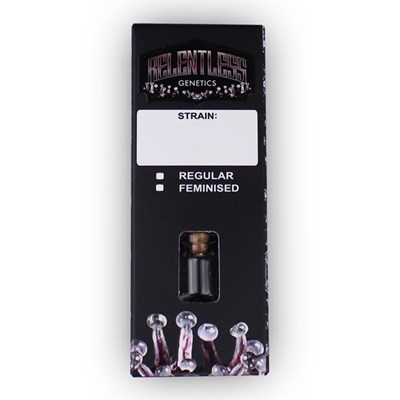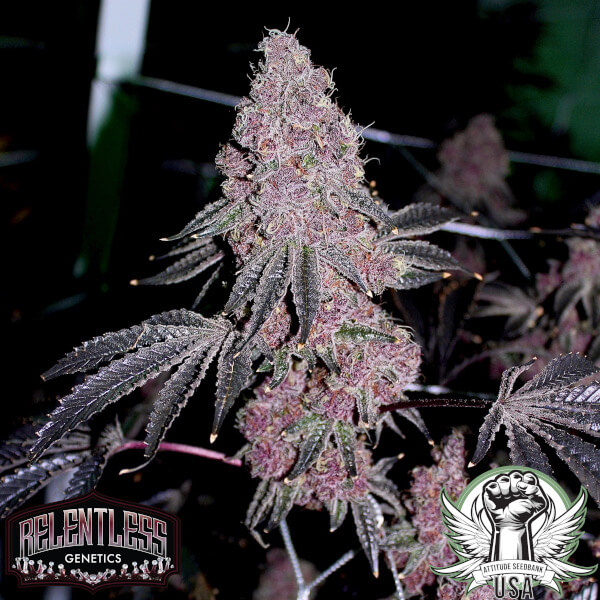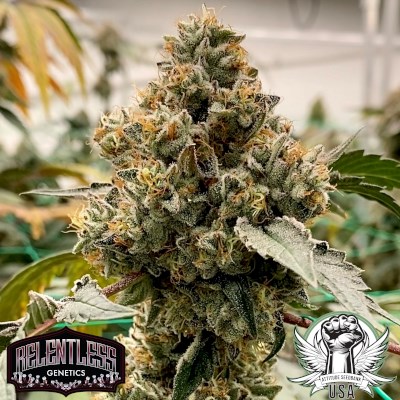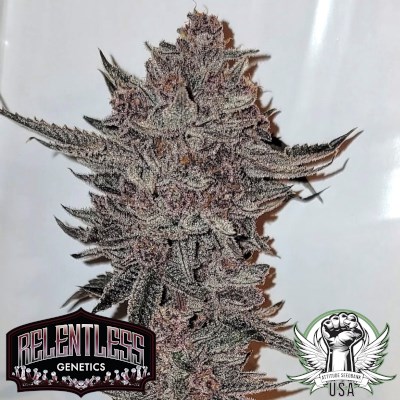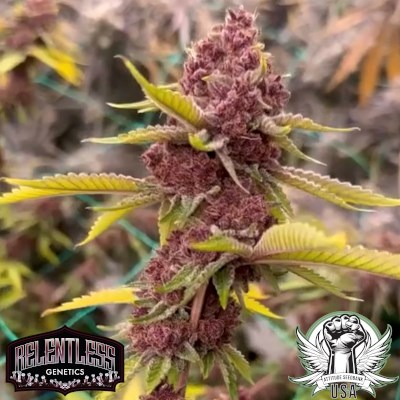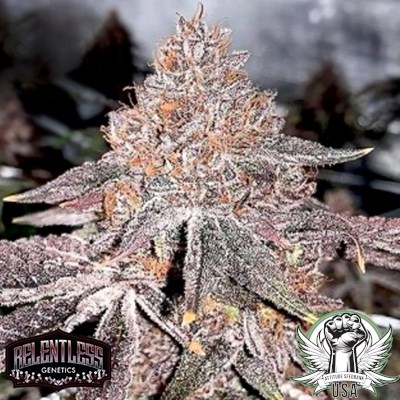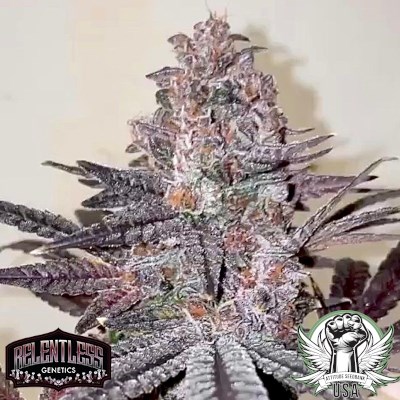
800-763-1315
Relentless Genetics Seeds #1 Stunna F3

 Add to Cart »
Add to Cart »
Genetics
#1 Stunna F3 seeds are the product of an in-depth breeding process by Relentless Genetics, created by crossing #1 Stunna F2 with itself. The F2 generation is a unique blend of Twisted Velvet and Rozay genetics, contributing to the rich and multifaceted character of #1 Stunna F3. This complex lineage results in a distinctive cultivar that offers depth in both appearance and sensory qualities, making #1 Stunna F3 seeds a prized choice for dedicated growers and collectors.
Flavor and Aroma
The flavor profile of #1 Stunna F3 is a standout feature, delivering a sweet and fruity experience that captivates the palate. This sweetness is layered with subtle earthy undertones and a mild spice that adds complexity and richness. On the exhale, notes of ripe berries and delicate floral hints emerge, creating a nuanced and memorable taste journey. The aroma echoes these elements, filling the environment with a fragrant blend of fresh fruit, blossoming flowers, and herbal earthiness, which together offer a well-rounded and inviting scent.
Appearance
Visually, #1 Stunna F3 is notable for its dense buds that are generously coated with sparkling trichomes, giving the flowers a frosty, almost sugary sheen. The coloration is vibrant, showcasing a blend of deep green shades accented by purple and pink hues inherited from its Rozay ancestry. Bright orange pistils weave throughout the buds, providing a vivid contrast that enhances the overall visual appeal of the plant. This striking appearance makes #1 Stunna F3 seeds particularly appealing for cultivators who value aesthetics as well as quality.
Cultivation Details
#1 Stunna F3 seeds are suitable for both indoor and outdoor cultivation. With a flowering period of 8 to 10 weeks, the strain offers a balanced timeframe for growers seeking efficiency without compromising on bud development. Indoors, the plant’s bushy structure may benefit from training and pruning to optimize light exposure and airflow. Outdoors, #1 Stunna F3 thrives in temperate climates with adequate sunlight, responding well to standard cultivation techniques. The regular seed type provides the opportunity for breeding and selection, making it an excellent option for growers aiming for consistency and control.
- Genetics: #1 Stunna F2 x #1 Stunna F2 (Twisted Velvet x Rozay)
- Sex: Regular
- Flowering: Photoperiod
- Type: Mostly Indica
- Flowering Time: 56 - 70 days
- Height: Medium
- Area: Indoor & Outdoor





